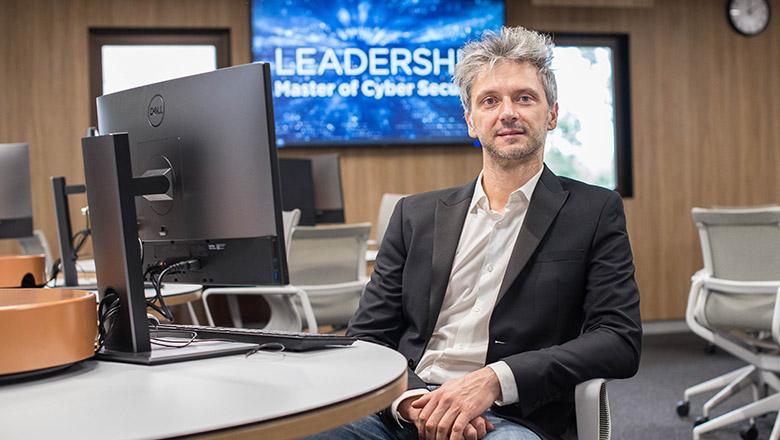Gone are the days when you could walk into a job with just a university certificate and a keen attitude. Nowadays, employers are seeking graduates who have industry knowledge as well as work experience and so-called “21st-century skills”.
But how are you supposed to gain experience while juggling classes, assessments, a part-time job and still making time for friends, family and some fun? That’s where work-integrated learning comes in, and The University of Queensland provides plenty of opportunities for students to get involved.
What is work-integrated learning?
Work-integrated learning (WIL) boosts employment prospects for soon-to-be graduates through hands-on work experience with some of the most well-known and innovative organisations in Australia – and the best thing is, it all counts towards your degree. Recent studies reveal over 70% of Australian university students who participated in work-integrated learning said their experience helped them to secure full-time employment after university and better prepared them for the workforce.
For business, economics and law students, work-integrated learning comes in many different forms, such as completing an internship at a host organisation or working in a group on an industry project. Students get a taste of their potential future workplaces while also gaining valuable transferrable skills.
What are the benefits of work-integrated learning?
UQ Bachelor of Advanced Business (Honours) graduate Katie McFadden says the best thing about work-integrated learning was that she didn’t have to sacrifice study time or spending time with her friends and family, because it combined her study and work experience together.
“You can complete an internship or industry project as part of your course,” says Katie, who completed a WIL internship at Deloitte in Tax & Advisory, facilitated by BEL Careers and Employability.
“It’s great because you’re gaining relevant work experience and course credit at the same time.”
Putting classroom theory into practice
Katie’s WIL internship was an opportunity to apply what she was learning in the classroom in a real-world context and develop new capabilities on the job.
“I applied what I learnt in my uni courses to the work I was doing at Deloitte; I had my course notes open from an income tax law subject as I was completing some of my internship tasks,” she says.
“I was also taught a lot of skills on the job, particularly when working with legislation... I investigated different legislations and applied my findings to writing advice for various clients.”
“During my internship, I networked with many other students within my discipline as well as people working in the industry. It was good to get an insight into the different types of work experience available through WIL and how this can open doors to getting a job after university.”
The experience also gave Katie the confidence to follow a career in her chosen field. It even helped her secure a graduate role with her host organisation.
“I really liked putting my favourite subject from uni into practice, and it confirmed for me that I wanted to pursue a career in tax accounting,” she says.
“I received positive feedback about the work I completed as part of my WIL internship, and I was so excited to be offered a position in Deloitte’s Graduate Program, which I accepted.”

Partnering with industry
Employers are seeking graduates who not only have the knowledge and technical skills that are taught in the classroom, but also key 21st-century skills such as:
- critical thinking
- problem solving
- creativity
- collaboration
- the ability to manage diversity and ambiguity.
These skills are best developed through authentic, real-life learning experiences.
Senior lecturer in Cybersecurity Management Dr Ivano Bongiovanni understands how important work-based learning is to help students gain the practical skills they need to succeed in industry. He partnered with leading Australian digital design agency Liquid Interactive to deliver ‘Creativity for Innovation and Design Thinking’ – a work-integrated learning course specifically for business students.
Ivano says students had the opportunity to apply their knowledge and skills to a real customer discovery project, addressing several challenges faced in the digital industry.
“From an employability perspective, the most important thing for students is showing potential employers that you can think outside the box and that you have a taste for solving problems in a team environment, in complex work situations," he says.
"Our partnership with Liquid Interactive gives students the opportunity to develop creative problem-solving skills through engaging in industry-relevant activities.”
Students presented their ideation, prototyping and testing during live meetings with representatives from Liquid Interactive, who provided feedback to help students refine their work in preparation for their final report.
“We are in the business of solving complex social problems,” says Samantha Pearce, a Partner and former Head of Marketing at Liquid Interactive.
“One of the most valuable things we have is our experience and our knowledge. We see a lot of value in collaborating with UQ as a way to contribute to a positive future. If students understand the value of design thinking, they can take that with them into the workforce and help to design better solutions.”
“We look for employees who are exceptional at their craft, who have a breadth of life experience, a diversity of perspectives, and have been exposed to different ways of thinking."
While getting a degree and good marks are important, Ivano believes these alone are not making the cut anymore.
“Students need to get into the mindset of developing a broader portfolio of experiences," he says.
"Work-integrated learning projects are a great opportunity for students to develop their capabilities and showcase their skills to potential employers.”

Connecting with the right people
Ivano also thinks networking opportunities and getting in front of potential employers are extremely important.
Research on the employment outcomes of WIL shows that:
- over 77% of graduates gained improved professional capabilities for better job prospects
- over 59% of WIL students also said they gained a better awareness of potential organisations and industries.
Though it may seem daunting to step into the world of work as a fresh graduate, work-integrated learning helps set students up for success by enabling them to get a taste of professional working life. UQ’s WIL courses allow students to explore their career options, develop the skills they’ll need for life after university, and acquire important real-world capabilities that will help them succeed in any career path they choose.
Find out more about work-integrated learning opportunities within UQ Business, Economics and Law.
Want to learn more about the program Katie studied in preparation for a successful career in tax advisory?







